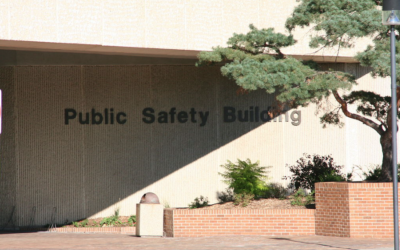The president’s proposed $1 trillion national infrastructure plan has become something of an anomaly. Once a highly touted campaign promise, the long-awaited plan has been void of any specifics and last spring was reduced to a set of ambiguous “principles.” However, both pre-campaign and post-inauguration, Trump’s proposal relied heavily on capital investment by the private sector.
Just a week ago, the president started walking back his often-stated commitment to use $200 billion in federal funding to leverage another $800 billion in private capital and other non-federal funds for an infrastructure plan. Word from the Beltway this week is that a new “outline or principles” for an infrastructure plan will be forthcoming from the Trump administration, possibly in the next week or so.
In the meantime, a group of House Democrats this week announced their own “principles” regarding how to rebuild the nation’s infrastructure. Their plan relies on revenues created through repatriation, dedicating funds realized from taxing corporate earnings overseas that are returned to the United States, and a congressional commitment to long-term, adequate funding of the Highway Trust Fund. And, unlike Trump’s sudden lack of interest in P3s, this new proposal encourages more public-private collaborations.
The American Society of Civil Engineers says that the U.S. is currently facing a $4.6 trillion deficit in infrastructure spending for critical needs. Infrastructure projects in dire need of repair include roads, bridges, airports, water resources, wastewater treatment plants, ports and energy-related projects. Absent a federal commitment to increased funding or support for private capital investment, state and local officials will be seeking funding sources that will likely fall on citizens and taxpayers. Some funding may come from increased state gas taxes, local fees and passage of infrastructure-related bond issues.
At a time when many communities need billions for infrastructure repair because of damages caused by some of the nation’s costliest disasters – hurricanes Harvey, Irma and Maria – if ever it seemed reasonable to find ways to support collaborative efforts and private investment, it might be now. But, perhaps Congress can find other ways to allocate funding.

Government officials are beginning to realize the lower risk, potential cost savings and increased efficiencies of entering into public-private partnerships (P3s). One of the nation’s bellwethers of change regarding collaboration between the public and private sectors is the Pennsylvania Department of Transportation’s (PennDOT) Rapid Bridge Replacement project. Arguably one of the nation’s most successful infrastructure P3s, the state’s transportation agency partnered with a consortium of private-sector firms to replace 558 aging bridges in the state. The program, which began in mid-2015, completed its 200th bridge replacement in January. An additional 200 bridges are expected to be replaced this year, and 100 more in 2018.
So successful is this program that PennDOT this week announced it is accepting unsolicited proposals from the private sector for other infrastructure needs. The agency is seeking proposals to address innovative solutions for delivery of roads, bridges, aviation and ports or proposals that will address how to more efficiently manage current PennDOT transportation-related services and programs.
Regardless of what type of funding mechanism is used, disaster recovery and infrastructure rebuilding must occur. Every citizen and taxpayer should carefully monitor how Congress proposes to resolve the country’s crumbling infrastructure. And, citizens who really care about preserving the country’s greatest assets will hopefully urge members of Congress to hurry and find consensus on this important issue.
Strategic Partnerships, Inc. is one of the leading procurement consulting companies in the U.S. Contact them today to learn how to increase your public sector sales.






